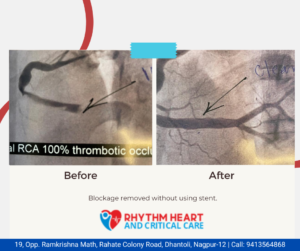Maintaining heart health is crucial for overall well-being, and one of the most effective ways to achieve this is through regular heart check-ups. These routine assessments play a pivotal role in preventing serious cardiovascular conditions by identifying potential issues before they become critical. This blog explores the significant impact of regular heart check-ups and why they should be a cornerstone of your health maintenance routine.
Understanding Regular Heart Check-Ups
Regular heart check-ups involve routine evaluations of heart health, typically conducted by a cardiologist. These check-ups can include various tests and screenings designed to monitor the heart’s function, detect early signs of heart disease, and assess risk factors. Common components of these evaluations include:
- Physical Examination: A thorough physical exam helps assess overall health and identify any immediate concerns related to the heart.
- Blood Pressure Monitoring: Regular monitoring of blood pressure can detect hypertension, a major risk factor for heart disease.
- Blood Tests: Blood tests can measure cholesterol levels, glucose levels, and other markers that indicate cardiovascular health.
- Electrocardiogram (ECG): An ECG records the electrical activity of the heart, helping to identify irregularities such as arrhythmias.
- Echocardiogram: This ultrasound test visualizes the heart’s structure and function, detecting issues such as valve problems or heart chamber abnormalities.
Importance of Regular Heart Check-Ups
Regular heart check-ups are essential for maintaining cardiovascular health and preventing serious heart conditions. These routine evaluations provide a comprehensive assessment of heart function and can identify potential problems before they escalate. Here’s why they are crucial:
- Early Detection of Heart Disease: Many heart conditions develop gradually and may not show symptoms until they become severe. Regular check-ups help detect these conditions early, allowing for timely intervention.
- Management of Risk Factors: Regular assessments help monitor risk factors such as high blood pressure, high cholesterol, and diabetes, which are significant contributors to heart disease.
- Personalized Health Monitoring: Ongoing check-ups allow for personalized treatment plans based on an individual’s unique health profile, leading to better management and prevention of cardiovascular issues.
- Prevention of Complications: By detecting and addressing potential problems early, regular check-ups help prevent severe complications like heart attacks, strokes, and heart failure.
Benefits of Regular Heart Check-Ups

- Improved Detection and Treatment: Regular check-ups facilitate the early detection of heart conditions, leading to prompt treatment and a better chance of managing the disease effectively.
- Better Management of Risk Factors: Routine evaluations help in managing risk factors such as hypertension, cholesterol levels, and diabetes, which are critical in preventing heart disease.
- Enhanced Quality of Life: By keeping heart health in check, individuals can maintain a better quality of life, with fewer limitations due to heart conditions.
- Personalized Care: Regular assessments allow for tailored treatment plans, addressing specific needs and adjusting treatments as required for optimal heart health.
- Ongoing Monitoring: Continuous monitoring helps track changes in heart health over time, enabling adjustments to treatment plans and lifestyle recommendations.
From Which Age Should People Start Considering Heart Check-Ups?
The appropriate age to start regular heart check-ups depends on various factors, including family history, lifestyle, and existing health conditions. Here’s a general guideline:
- Early Adulthood (20s-30s): For individuals with a family history of heart disease or those with risk factors like high blood pressure or diabetes, early check-ups may be recommended. Regular evaluations can help establish a baseline for future health.
- Midlife (40s-50s): It is generally advisable for individuals to start regular heart check-ups in their 40s. This age is critical for assessing risk factors and addressing any emerging heart health issues before they become serious.
- Senior Age (60s and Beyond): For older adults, regular heart check-ups are essential due to the increased risk of heart disease with age. Routine evaluations help monitor and manage heart health as age-related changes can affect cardiovascular function.
- High-Risk Groups: Individuals with a family history of heart disease, those who are overweight, smokers, or who have other chronic conditions should consider regular heart check-ups regardless of their age.
Managing Risk Factors
Regular heart check-ups are essential for managing key risk factors for heart disease. They monitor blood pressure, cholesterol levels, and blood glucose, helping to prevent serious conditions. These visits also allow for guidance on lifestyle changes, such as diet and exercise, to support overall heart health. Regular monitoring helps in early detection and effective management of cardiovascular risks.
Psychological and Emotional Benefits
Regular heart check-ups also offer psychological and emotional benefits. Knowing that you are actively monitoring and managing your heart health can reduce anxiety and stress related to potential heart issues. This proactive approach helps individuals feel more in control of their health and well-being.
Highlights:
Incorporating regular heart check-ups into your healthcare routine is a proactive strategy for maintaining cardiovascular health and preventing serious conditions. By detecting potential issues early, managing risk factors, and providing personalized care, these check-ups play a crucial role in ensuring long-term heart health. To safeguard your heart and overall health, make regular heart check-ups a priority and consult with your healthcare provider to schedule your next assessment.
For more information on how regular heart check-ups can benefit you, visit our website Rhythm Heart and Critical care and explore our comprehensive cardiology services.
If you want to learn about cardiovascular examination, kindly go through the provided resources for better understanding.







